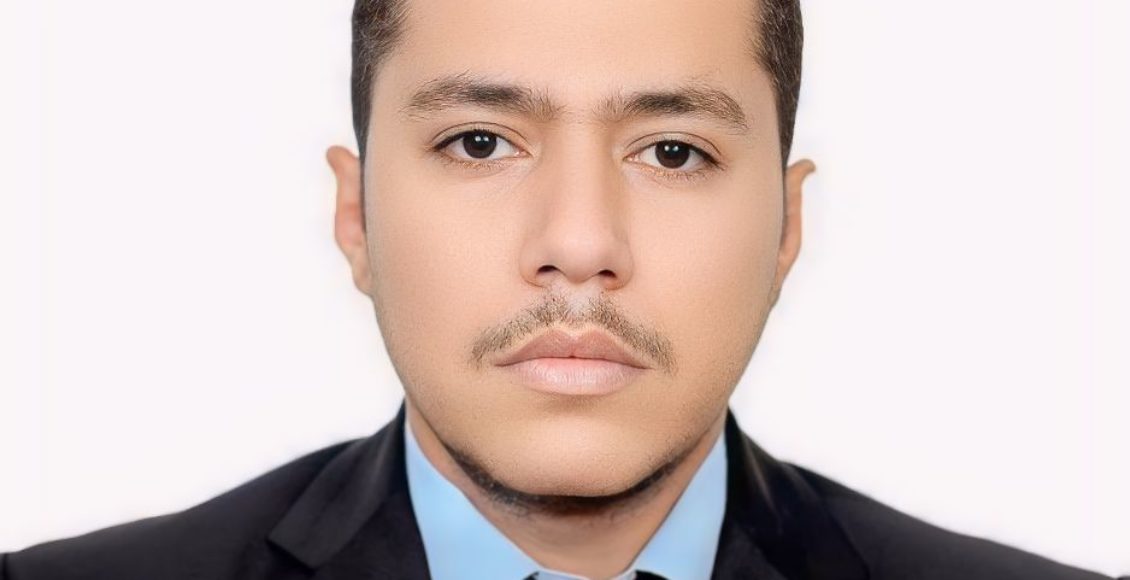
Sabir Al-Haydari
Violation Time: 15/4/2022
Violation Location: Aden
Violation Type: Killing/Explosive Device
Perpetrator of the Violation: Unknown
Three minutes after they parted ways, Sabir Al-Haydari’s colleagues heard a violent explosion.
Al-Haydari’s car had reached the Kabouta area in the temporary capital Aden, where an explosive device exploded, instantly killing him. Sabir Al-Haydari’s colleagues believe that a cell belonging to the Houthi group had tracked the journalist’s movements and planted the device in his car in mid-April 2022.
The 42-year-old journalist had an extensive record of media work since his youth. He was the head of activities at the Media Center in 2002, then the head of the local communications department in the public relations at the Ministry of Information in 2004, which allowed him to work as an escort for a number of foreign delegations and then as a coordinator with a number of Arab and international media outlets before working as the director of the Follow-up Department at the office of the government’s official spokesman in 2013.
Sabir Al-Haydari moved to work in the private sector as the executive director of the Friends of Media Foundation since February 2015, producing media content, documentaries and reports for a number of local and international channels. His colleagues focus on an important report he produced for the Japanese television on the diversion of humanitarian aid. The report documented the diversion of aid to the battlefronts or to members affiliated with the Houthi group instead of the real beneficiaries. As a result, some donor agencies suspended some humanitarian aid in areas under Houthi control. The Houthis believe that the donor agencies relied on what the journalist Al-Haydari had produced.
Saber Al-Haidari, along with a group of his colleagues from the coastal governorate of Hodeidah in western Yemen, had been subjected to harassment by the Houthis after their coverage of events in the governorate that have a strategic location on the Red Sea. After the arrest of several journalists and activists from Hodeidah, others managed to leave, including the journalist Mahmoud Al-Otmi, who settled with his journalist wife Rasha Al-Harazi in Aden governorate in southern Yemen. This is the governorate to which Saber Al-Haidari will also transfer his media work and activity.
The journalists of Hodeidah thought that they were safe from the danger of the Houthis, so they resumed their work and reported some of what was happening in the coastal governorate . The focus was greater on the violations committed by the Houthis. One of the electronic campaigns was under the hashtag “Hodeidah is dying”, in which a number of young people and activists of the governorate participated, which angered the Houthi apparatus that run the governorate.
In November 2021, while Mahmoud Al-Otmi, accompanied by his journalist wife Rasha Al-Harazi, on their way to one of Aden’s hospitals, an explosive device planted in his car exploded, killing Rasha and her fetus and seriously injuring Mahmoud. Hodeidah journalists weren’t sure who was behind the targeting and what his motives were at an early time. Despite the threats they were subjected to from time to time, and after about five months, an explosive device exploded in Saber Al-Haidari’s car, killing him. The journalists of the coastal governorate were sure that they were being pursued by the Houthi group, especially as threats were received after the murder, in addition to information from former detainees, and this was discovered by the investigations into the incident of targeting Mahmoud Al-Otmi and his wife Rasha Al-Harazi, where the statements documented by the Free Media Center for Investigative Journalism regarding this targeting and the interrogation reports indicated the names of leaders of Houthi apparatus in Hodeidah governorate, who are responsible for prosecuting journalists.
One of them confirmed: the Houthis wanted to silence the voices of Hodeidah by various means, threatening messages, bombing.. The governorate journalists feared for their lives after Al-Haidari’s voice was silenced by an explosive device.. Now Hodeidah has no voice and we don’t know what’s going on.
Free media for Investigative Journalism calls on fellow journalists and human rights organizations to advocate for the cases of Yemeni journalists who have been subjected to violations in the past years, and work to activate justice and hold the perpetrators of these violations accountable.
Note
|This summary comes within the framework of the ‘For Truth’ project, which will be published within an in-depth report containing the details of this story during the current year 2024.
Editing for publication: Salman Al-Humaidi
An independent Yemeni journalist, he worked as editorial secretary for Al-Ahali newspaper, before moving to work as editorial director for the national newspaper Hadith Al-Madina. He writes for many news websites, in addition to his work as an editor with many media and human rights institutions.

